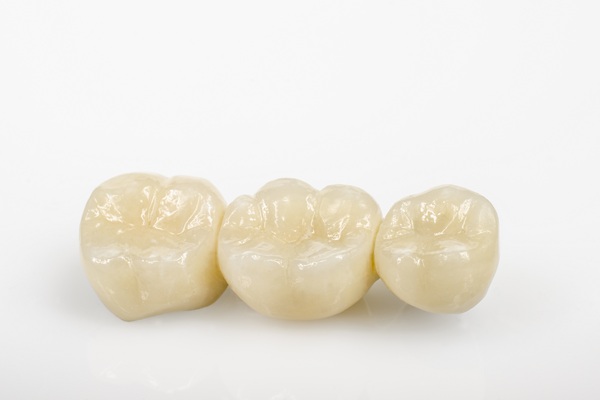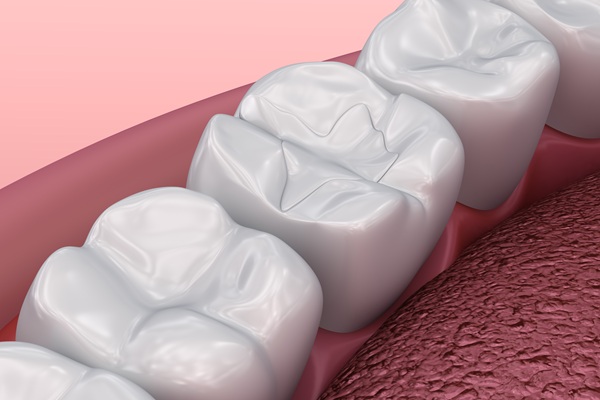When Would a Dentist Recommend Root Canal Therapy?

Root canal therapy can restore your oral health. The treatment aims to remove the tooth’s infection and stop the pain. Anything can cause dental pain. It may signal your need for endodontic treatment. If you want to know when a dentist would recommend root canal therapy, here are the details.
Incessant pain
Pain may indicate an immediate need for this therapy. This may be a debilitating kind of discomfort. Describing the pain will help the dentist determine if the patient does need it. Below are the different types of pain signifying a root canal infection:
- Spontaneous toothache
- Pulsing toothache
- Easy identification of the painful tooth
- Changing pain when posture changes
- Pain from stimuli (pressure, temperature, touch)
- Pain does not go away with pain relievers
Gum pimples or boils
Pus could either penetrate the soft tissues around the tooth. This causes swelling and tenderness. Pus could also form a drain to leave the area of infection. Gum boils are pus drains. These are fistulous tracts. They let the pus flow out instead of spreading into the tissues surrounding the tooth.
Gum swelling and tenderness
These often occur with any type of tooth pain. The dentist may see these as signs for a root canal treatment. The swelling manifests as a lump. The patient could feel this with the tongue. This tissue inflammation may spread to the neck or face. These are the traits of the type of swelling associated with a root canal infection:
- Obvious swelling
- Gum swelling in front of the root tip
- Foul breath
- Gum boil on the root tip
- The affected tooth feels longer than the surrounding teeth
- Swelling may last for days or even months
General body malaise
A person with a tooth infection often feels uneasy. Fever occurs with swollen lymph nodes. An immediate dental visit will confirm the patient’s need for a root canal therapy. This will enable the patient to keep the infected tooth. It will prevent the occurrence of complications as well.
Exposed nerve
It is not easy to see how close a nerve is to the surface of a tooth. The exposure of this nerve can happen during dental treatment or an injury. Damage to the tooth’s structure can create openings for nerve exposure. Root canal therapy can correct this situation. This treatment can then prevent tissue degeneration.
Dental discoloration
A tooth changes color when there are alterations in the nerve space. Trauma is the common cause of tooth discoloration. The color change may show the need for endodontic treatment. Pain and swelling may not be present with the discoloration.
Testing if the patient needs root canal therapy
The dentist will need confirmation before suggesting this treatment. This therapy is invasive. That is why the diagnosis must be correct. Some testing techniques for determining if the patient needs the therapy include digital X-rays at different angles, tapping on the affected tooth, electric and thermal testing, cavity test, and selective anesthesia.
The benefits of a root canal
A root canal can prevent the infection of neighboring teeth. Removing the infected pulp that harbors bacteria prevents the growth and spread of these bacteria. A root canal can also prevent tooth loss, which leads to preserving the natural arrangement of the patient’s teeth. With missing teeth, the jawbone easily degenerates over time due to bacteria exposure. Root canals, therefore, can prevent complications of the jawbone in the future.
A root canal also restores the functionality of the tooth as well as the aesthetic value of teeth. Unlike other dental procedures, such as root extraction, a root canal is a comfortable and usually painless procedure. That is why most patients prefer it as a procedure for tooth decay and cavities. A root canal keeps teeth in good condition and also prevents extreme procedures, such as tooth extraction.
Apart from maintaining a patient’s good dental health, a root canal can also boost overall health by preventing conditions associated with poor oral health. These conditions include heart disease, respiratory infections, diabetes, and gastrointestinal infections. As a result, both the oral and overall health of the individual are boosted. This, in turn, helps the patient avoid serious health problems in the future.
Root canal therapy can help stop the pain and swelling
Pain, swelling, pus, and discoloration are clear signs of a dental problem. Seeing the dentist will confirm if you should have a root canal treatment soon. This therapy aims to remove the discomfort and infection. It can also enhance your dental and general health.
Are you considering getting a root canal in the Brooklyn area? Get more information at https://www.myddsny.com.
Check out what others are saying about our dental services on Yelp: Root Canal in Brooklyn, NY.
Related Posts
Looking for root canal information? Understanding the root canal process is necessary for those who are in need of root canal therapy to improve their oral health. Part of the process is choosing a restoration option to protect the treated tooth from further damage, as lost teeth need to be replaced. Ready to find out…
If a dentist has told you that you need root canal treatment, it is usually because you have an infected tooth. Also known as endodontic therapy, root canal therapy can help to repair an infected tooth and save it from extraction. The procedure is relatively simple and involves getting rid of the infected material inside…
Root canal treatment is often successful at repairing and saving an infected or severely damaged tooth. A crown can be used to restore your tooth after the procedure. But it needs to be put in place at the right time. Read on to learn more about when you should get a crown after a root…
If you desire a more aesthetically pleasing smile, dental veneers are options that you should consider. Veneers are thin, customizable shells created to cover the front sides of the teeth. A dentist will often suggest this option when there are imperfections on the teeth, some of which are covered in this article. Continue reading to…


